|
Advertisement
|
Damocles

DescriptionThe representational game Damocles uses simultaneous self-regulating play to structure players’ ongoing struggle for total political and economic control of several adjoined kingdoms. In Damocles, players act as the heads of state of small neighboring monarchies, each intent on ultimately controlling the entire minor region. Surrounded by greater and potentially unfriendly powers, the players’ tools for supplantation and overthrow are not in fact battles or force of arms, but instead only the threat of them, used as a tool supporting the diplomatic and economic cores of the game. For by defining and redefining their own political objectives as specifically, as well as ambitiously or conservatively, as they like, players use military struggle over resources to tie the economy to the government. No fighting ever takes place in a game of Damocles. Rather, players use their abstracted military forces, of several types, in combination to exert verbal control, whether transient or permanent, over the production of resources in various economic regions across the board. Any player may claim the right to produce from a certain production point simply by saying so; any other player may stay that right by doing the same if he or she wishes. Either can choose to fight a “war” of control by playing out the military maneuvering to its end, but either can also verbally relinquish his or her control to avoid having to do so. Because all the while the involved players are posturing and maneuvering for control of a resource, every other player is still playing the game: producing resources, positioning threats over control, operating trade routes, running his or her government. Moments spent squabbling over resources are moments not spent on other things. Sometimes demonstrating a competent military position over a region isn’t worth the time it takes away for addressing issues of politics and trade. And although a player may opt to step, player by player, through a military sequence, doing so severely degrades relations between the involved parties and temporarily suspends all nonmilitary activity on the player’s part. For most of play in Damocles is not jostling military over resources. In the interest of mutual productivity, quarreling players may often find themselves inclined to settle into regulated borders, freeing themselves to focus on economic struggle rather than military—reserving military forces for the right time and the right place. In Damocles, each kingdom’s economy supports not only its population, but also its infrastructure, military forces, and ruling class. And because each player’s kingdom, built in real time at the beginning of the game from individually and arbitrarily available miniature hexagonal tiles, differs—often substantially—from each other player’s kingdom, much of what a player’s economy requires may be more efficiently available through mutually beneficial trade. By trading, however, each player relinquishes a sometimes uncomfortable degree of control over his or her own economy. Trading with other players creates increasingly independent transborder ties between transacting kingdoms’ traders and merchants. Ties of trade, rather than of government, are durable and difficult to break and when solidified cannot be dissolved at a monarch’s whim without grave repercussions, and perhaps only by undue effort. Stopping trade degrades relations permanently—not least because a country’s political influence among its neighbors relies partly on its level of trade with them. However, political influence among one’s neighbors arises from more than macroeconomic ties. In Damocles, each player is free to act as he or she wishes, without limitation, subject only to the efficiencies arising from his or her government’s structure. But that structure in turn can be abused by the player’s opponents as they conspire to subvert members of the player’s government for their own ends. The player is free to root out such unfaithful ministers, but the political costs of witch hunting can be high—as can be the efficiency costs of restructuring a government to discover an unfaithful minister without a full-blown purge. In Damocles, each player directs the main force of his or her kingdom’s government in all its intrigues, including from in exile. Each player may take part in what plots he or she likes—assassinations, intrusions, trade embargos, commodity dumps, briberies, overthrows—but must also improve his or her own kingdom’s economy while solving the problem of the current potentate’s succession, walking a fine line between enmity and cooperation with the kingdoms on every side. And if the government is subverted or the military stretched too thin, or the economy driven into futility, each ruler continues his or her work from exile, administering what government he or she can while resisting the occupying force before each other kingdom falls to the same opponent. Game DiscussionsAdd CommentYou need to be logged in to comment. Insert Bullet List Please enter at least one item. Item: Item: Item: Item: Item: Insert Numeric List Please enter at least one item. Item: Item: Item: Item: Item: Insert Link Please enter the link of the website Optionally you can add display text Insert Email Please enter the email address Optionally add any display text Insert Image Please enter the link of the image Insert YouTube Video Please enter the link of the video MarketplaceNo listings at the moment. Do you own this game? Click here to list it for sale.
|
Best Sellers
Board Games
|
||||
Latest Searches: disney trivial pursuit | Catan traveler | Wild pip | Hero Series | monopoly survivor | re | Osmo | Monopoly, Simi Valley | Franklin-Opoly | Racoon tycoon | San Clemente o poly game | Nerf fort nite darts | BayCityopoly | trimones | genius square | date | demons | Clue The Disney Theme Park Edition Tin The Haunted Mansion | the big bang theory monopoly | Monopoly Pokemon Kanto Edition Australian stock | Supernatural monopoly game | Click+Clack+Lumberjack | Sulphur Opoly | Columbus Georgia monopoly | Fur+real+oso | dc games | catan spanish | ship games | Origins | Ahsoka tano action figures
All Rights Reserved




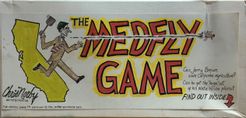
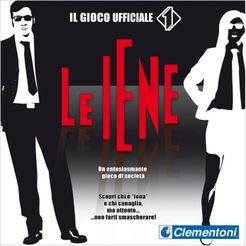
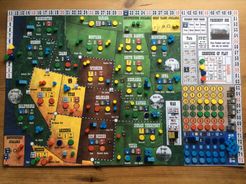


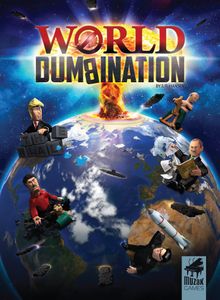
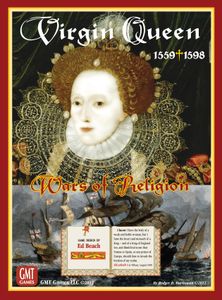
Comments (0)